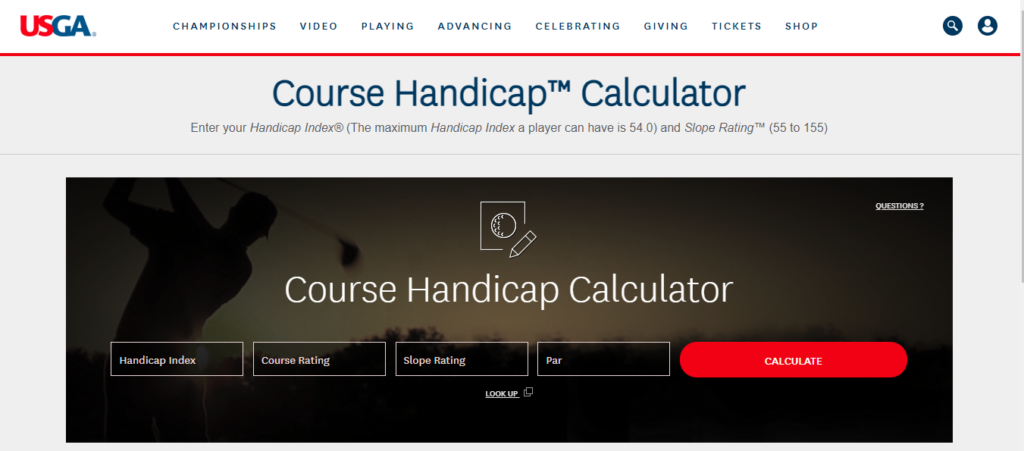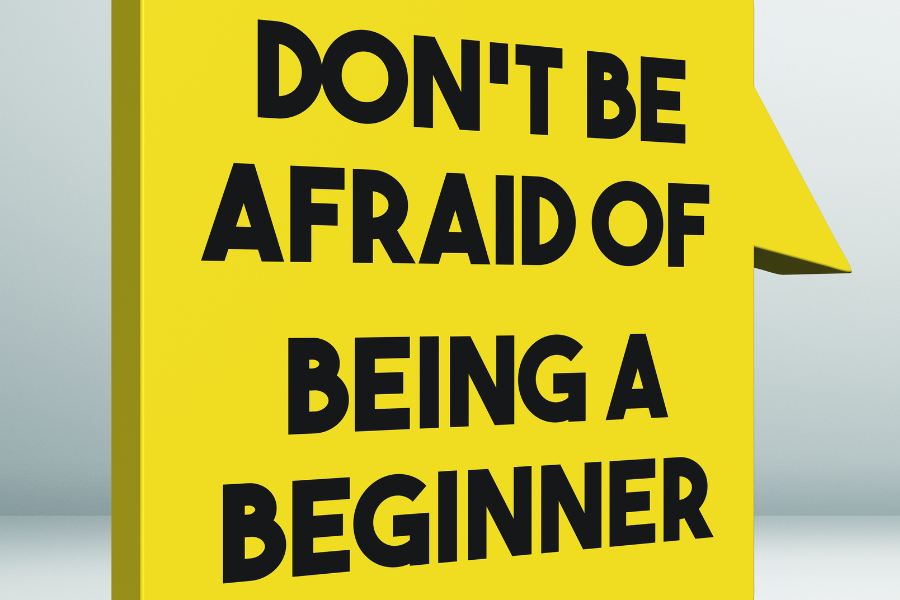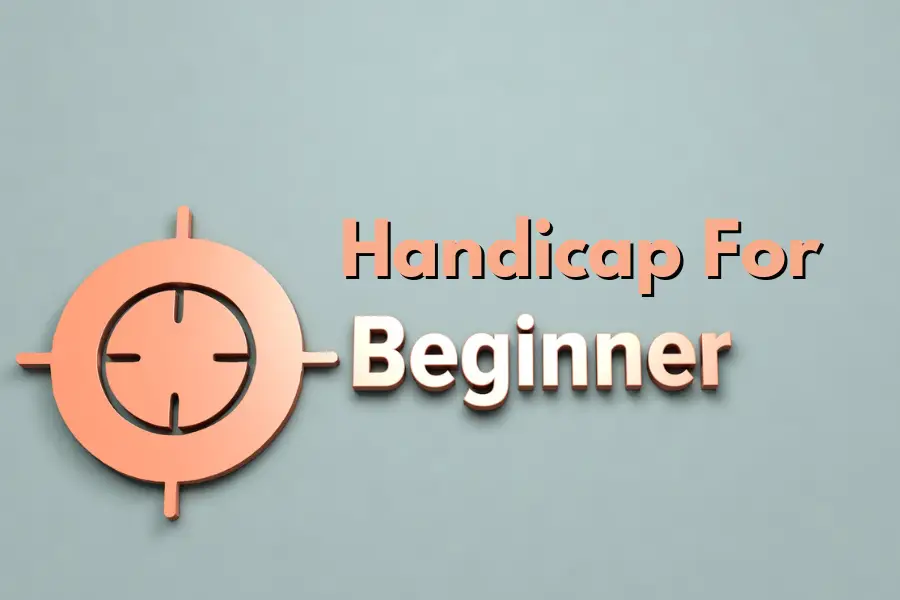If you’re a beginner at golf, you must wonder why the handicap is such a big deal. And more importantly, what is a handicap in golf?
To be precise, it’s a number that tells you how good (or not so good) you are at golf. The exciting thing is that it lets players of different skill levels compete on an equal level.
In this guide, I have covered the Handicap for a beginner golfer plus how to improve it like a pro.
I have made this guide specifically for beginner golfers that will take you through the ins and outs of golf handicaps, their importance, and what makes a good, average, or challenging handicap for a beginner.
So fear not if your initial handicap isn’t exactly where you hoped it would be; by following some key advice highlighted in this guide, you will improve your golfing skills eventually.
What is the Handicap for a Beginner Golfer?
A beginner golf handicap is a fundamental aspect of the game. It ensures fair play for golfers of all skill levels.
At its core, a golf handicap is a numerical representation of a player’s skill level in comparison to the difficulty of the golf course. It acts as a measuring tool, indicating how well a golfer is expected to perform on a particular course based on their abilities. This system enables players of differing skill levels to compete against one another on an equal level, creating an even playing field for all participants.

Handicaps are typically expressed as a single number, such as 18 or 10. This value represents the “strokes” that are given to or deducted from a golfer’s score to level the competition. For example, if your handicap is 18 and you shoot 90 in a round, your net score would be 72 (90 – 18).
Here is how it works, let’s say you are a newbie while your friend is a seasoned pro. You have a handicap of 18, and your friend has a handicap of 10. When you two go head-to-head on the course, you’ll get a head start of 8 strokes to even things out. So now, both of you have an equal chance of success.
Do you need a handicap as a beginner?
Now you might wonder, as a beginner golfer, do I really need a handicap?
The answer is absolutely!
Having a handicap can offer numerous advantages that enhance your golfing experience.
It acts as a reliable measure of your improvement over time. As you play more rounds and your skills develop, your handicap will adjust accordingly, reflecting your progress and growth as a golfer.
Moreover, with a handicap, you gain access to a wide range of handicapped tournaments and events. These competitions allow golfers of all levels to compete fairly, making it an excellent opportunity to test your skills against a diverse field of players. Without a handicap, playing against more experienced golfers can be discouraging.
Starting Handicap for Beginners

When you begin your golfing journey, it’s typical to start with a handicap of 54, which is the highest possible handicap under the standard system. This starting handicap of 54 indicates that, as a beginner, your golfing skills are at a level where you might need the most strokes to complete a course compared to more experienced players.
Having this handicap doesn’t mean you’re a bad golfer. It simply signifies that you are still learning. As you gain more experience, your handicap will begin to adjust and reflect your true abilities accurately.
To help visualize the handicap ranges for beginners,
| Handicap Range | Skill Level & Description |
| 7-15 | Good score, Impressive play, solid technique |
| 15-20 | Average score, Steady progress, growing confidence |
| 20+ | Bad score, Early stages, room for improvement |
Good handicap you can have as a beginner (Around 7-15)
Having a handicap of 7-15 as a beginner is rare yet a great achievement. If you have achieved a handicap in the range of 7 to 15 as a beginner, it means that you have shown consistent play, improved your technique, and developed a good understanding of the game’s strategies. Reaching this level requires dedication, practice, and a passion for golf.
Average handicap you can have as a beginner (Around 15-20)
Getting a handicap in the range of 15-20 as a newbie is considered average. If you have achieved a handicap in the range of 15 to 20 as a beginner it means you’re making steady progress and gaining confidence on the course. You may still have occasional challenging rounds, but you are becoming more comfortable with the game and seeing improvements in your scores.
Bad handicap you can have as a beginner (Around 20+)
As a beginner, having a 20+ handicap is considered bad. However, if your handicap falls in the 20+ range, not a big deal; you can always improve it. Many factors can contribute to a higher handicap for beginners, such as limited practice time, lack of experience, or inconsistent play. The key is to stay positive and focus on continuous improvement.
Beginner Guide to How to Improve Handicap
Underneath are the tips at a glance that will surely help you improving your game. These tips are offered by my coach Alex when I asked him to consicely share some. Hope this helps.
- Practicing your putting. Focus on short putts inside three feet and practice those lag putts to save strokes around the greens.
- Avoid using the driver. Control is key for beginners, so consider using a 3 or 5 wood off the tee instead of the driver. A shorter hit off the tee but on the fairway sets you up for better second shots.
- Aiming straight for the flag might seem like a good idea, but aiming for the center of the green is a smarter move. It reduces the risk of missing the green and gives you a better chance at a solid approach shot.
- Choosing the right club is necessary. Find a club, like a high-lofted hybrid, that you can rely on to keep you out of trouble and on the fairway.
- Understand your club distances, especially carry distances, to hit greens and avoid hazards. Aim to be confident with your club selection to cover the critical yardages.
P.S. Good Nuggets from RyanChrisGolf; make sure to check out this video guide too.
How can you calculate your Handicap? (the easy way)
I observe people making it much more complex for the people, but there is a simpler approach to it. Let’s break it down.
Calculating Your Handicap Index:

There are many methods, tools, and mathematics being used to find the handicap index, but anyway, leave them all for now. Simply go to USGA’s course handicap calculator and enter your scores from past rounds, the system will calculate your handicap index for you accurately. It’s hassle-free and ensures your handicap is based on your best scores.
Calculating On-Course Handicap:
It’s essential to understand that your handicap doesn’t indicate how many strokes you shoot over par. Instead, you need to calculate your on-course handicap, which varies depending on the course and tees you’re playing from.
For ease, you can utilize tools like the GHIN handicap website or the USGA Course Handicap Calculator, which does the job for you. But if you prefer to do it manually, here’s a simple equation,
Multiply your handicap index by the ratio of the course’s Slope Rating to 113, and then add the difference between the Course Rating and Par.
Putting It All in Perspective
A golf handicap is essential for beginner golfers as it levels the playing field and allows fair competition. If you are starting with a handicap of 54, you will have ample room for improvement.

Utilize your handicap to set goals and track progress. Calculate it using automated calculators. Do not shy away from taking lessons from a qualified professional to lower your handicap. Get out on the course, practice consistently, and use your handicap as a tool for continuous improvement.
I hope you now have a better idea about What is the handicap for a Beginner Golfer.
FAQs
Q) How do I calculate my first golf handicap?
A) To calculate your first golf handicap, you’ll need to follow these steps:
- Play five 18-hole rounds of golf.
- Record your scores and find the Course Rating and Slope Rating for each course.
- Calculate your Handicap Differential for each round: (Score – Course Rating) x 113 / Slope Rating.
- Average the best four differentials.
- Multiply the average by 0.96 and round to the nearest tenth to get your first golf handicap.
Q) What would my handicap be if I shoot 90?
A) If you shoot a 90, you can consider your handicap to be an 18. This is an average golf handicap, indicating that you have room for improvement but also have some good moments on the course. Keep practicing and refining your skills, and you’ll see your handicap improve over time.
Q) How do I find my handicap index?
A) To find your handicap index, record your scores from each round, calculate the adjusted gross score, determine the handicap differentials, select the best scores, average the differentials, and multiply by 0.96. Alternatively, use online platforms like the GHIN handicap website or the USGA Course Handicap Calculator for automatic calculation.
Q) Is there an app to calculate course handicaps?
A) Yes, there are several apps to calculate course handicaps, Simple Handicap, among them, is an excellent solution for golfers who want to track their handicap index and calculate course handicaps without any additional costs. It offers an accessible and user-friendly way for golfers to monitor their progress and enjoy the benefits of having a handicap without needing paid services. Alternatively, you can also use the online calculators that I mentioned previously.
A guy with a charming face following his passion (both Golf and Blog) from Kansas. Bryan is the writer and creator of IAmLearningHowToGolf.com, loves golf, but he didn’t start playing until he was in his 20s. He’s not a pro by any means, but he’s put in the time and effort to get pretty darn good. Bryan’s main goal with this blog is to help other golfers improve their game and have more fun on the course. He does this by writing informative, relatable, and down-to-earth content. When he’s not golfing or writing, Bryan enjoys going on hikes, spending time with his family, and watching movies sometimes. For any queries reach out to him at Bryan@iamlearninghowtogolf.com.

